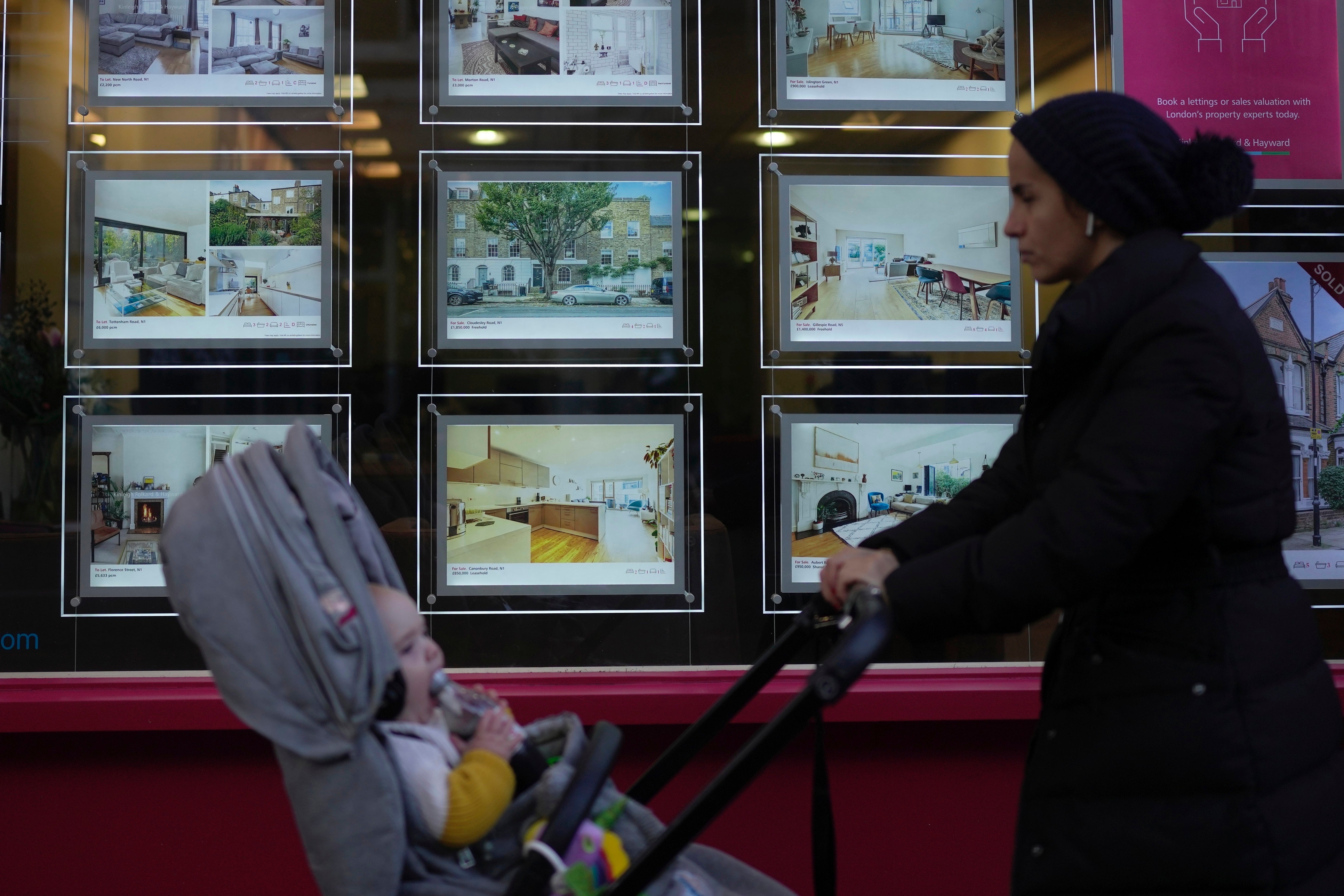Bank of England warned 7 per cent interest rates would send shock wave through housing market
A leading economist says there is ‘no need to panic’ as Britain is ‘not in an 07-08 scenario’
Your support helps us to tell the story
From reproductive rights to climate change to Big Tech, The Independent is on the ground when the story is developing. Whether it's investigating the financials of Elon Musk's pro-Trump PAC or producing our latest documentary, 'The A Word', which shines a light on the American women fighting for reproductive rights, we know how important it is to parse out the facts from the messaging.
At such a critical moment in US history, we need reporters on the ground. Your donation allows us to keep sending journalists to speak to both sides of the story.
The Independent is trusted by Americans across the entire political spectrum. And unlike many other quality news outlets, we choose not to lock Americans out of our reporting and analysis with paywalls. We believe quality journalism should be available to everyone, paid for by those who can afford it.
Your support makes all the difference.The Bank of England has been warned that pushing interest rates to 7 per cent could send shock waves through Britain’s housing market and average prices tumbling.
Leading economist Allan Monks, of JP Morgan, said some indicators suggest that the Bank of England’s key rate would have to rise a further 2 percentage points to 7 per cent in order to curb inflation as prices continue to climb.
Housing experts warned that hiking the Bank’s base rate that high could be “game over” for the housing market, with one mortgage broker saying it could cause average prices to plummet.
But a leading economist said Britain is “not facing a 2007-2008 scenario”, and that there is “no sign of any crash”.
Craig Fish, managing director at London-based mortgage broker Lodestone, said that if interest rates were to hit 7 per cent, the mortgage market would “tank completely”.
“There would be massive consequences for the economy and for the housing market,” he said.
Borrowers are already panicking about the potential for interest rates to hit 6 per cent, Mr Fish said. “If you go to 7 per cent, we will see a lot of properties come onto the market and people will be forced to sell,” he added.
“If we see rates hit 7 per cent, I genuinely think house prices going down 35 per cent is possible. I think it is going to be dire. That is why I cannot see it going to 7 per cent, because it would just have such dire consequences.”
Tom Pugh, an economist at consultancy RSM, warned that a base rate of 7 per cent – which would be the highest level since 1998 – would “start to break things”, as he predicted that house prices could fall by more than a fifth.
“Interest rates at 6 per cent would be enough to push the economy into a mild recession. But even a mild recession would quite reliably strip inflation out of the economy. So I don’t think you need to go that extra percentage point to push the economy into a deeper recession.”
Riz Malik, director of Southend-on-Sea-based independent mortgage broker R3 Mortgages, said that further rate hikes could be “the straw that breaks the camel’s back”.
Mr Malik said Jeremy Hunt’s mortgage charter, agreed with a group of Britain’s biggest lenders to allow those struggling to switch to interest-only mortgages, would stave off a housing crash, protecting homeowners from foreclosure.

But he highlighted the devastating impact of interest-rate hikes so far, saying his clients’ mortgage payments were being pushed up by between £300 and £700 a month.
He predicted at the start of the year that house prices could fall by between 10 and 15 per cent, and said that if interest rates increase further, some homeowners will be pushed into negative equity – where a person’s mortgage is larger than what their house is worth.
But Professor Abhinay Muthoo, a fellow at the National Institute for Economic and Social Research, insisted that there is “no need to panic” as Britain is “not in a 2007-2008 scenario”, referring to the global financial crisis that took place 15 years ago.
He told The Independent: “Nothing crazy is happening, there is no need to panic. The financial crisis of 07-08, that was panic time. We are not there. But people who are already suffering right now will suffer more.”
He said that the upper middle classes and richer households “will be just fine” if rates reach 7 per cent. And Prof Muthoo said that while this would have “implications for mortgage rates”, it would be “nothing crazy like double digits”.
He called for the government to provide urgent support for those on lower incomes, who are already struggling with higher food and energy bills. “The treasury needs to find a way to provide targeted support to the people who need it,” he added.
Two weeks ago, the base rate was hiked by 0.5 percentage points to 5 per cent to bring inflation under control, leaving homebuyers struggling to meet rising loan repayments.
Financial markets are expecting the Bank to increase the base rate above 6 per cent by the end of this year, and Mr Monks’ remarks heighten fears for the UK economy and household budgets.
On Tuesday, the average five-year fixed-rate deal jumped above 6 per cent for the first time since November, and mortgage holders were warned that fixed-rate deals could jump to 7 per cent this summer.
Some experts have urged the Bank of England to rethink the use of “out-of-control” interest rates to tame inflation, fearing that rising interest rates could tip the economy into recession.







Join our commenting forum
Join thought-provoking conversations, follow other Independent readers and see their replies
Comments